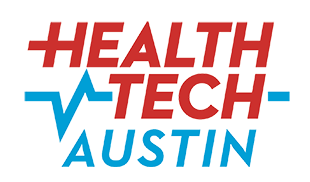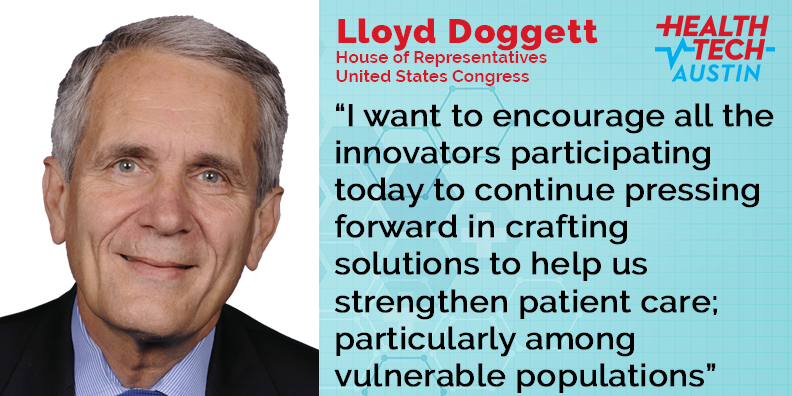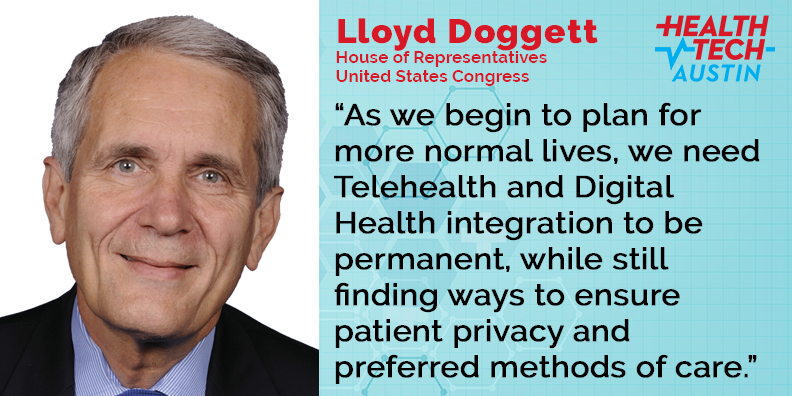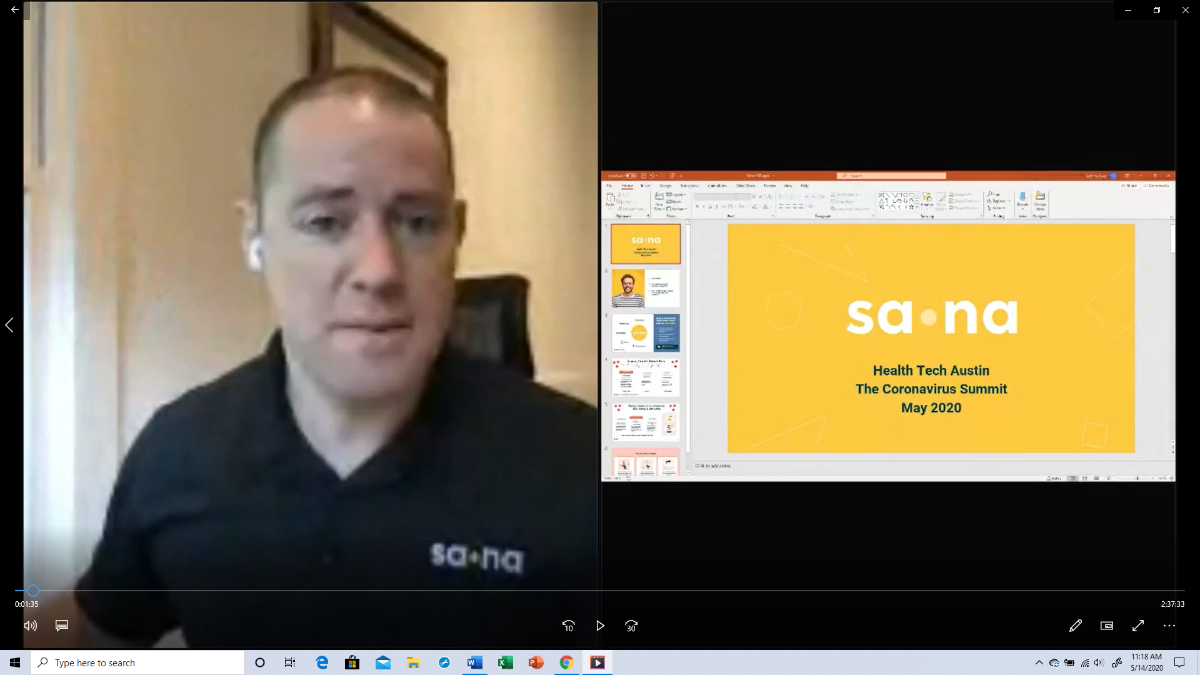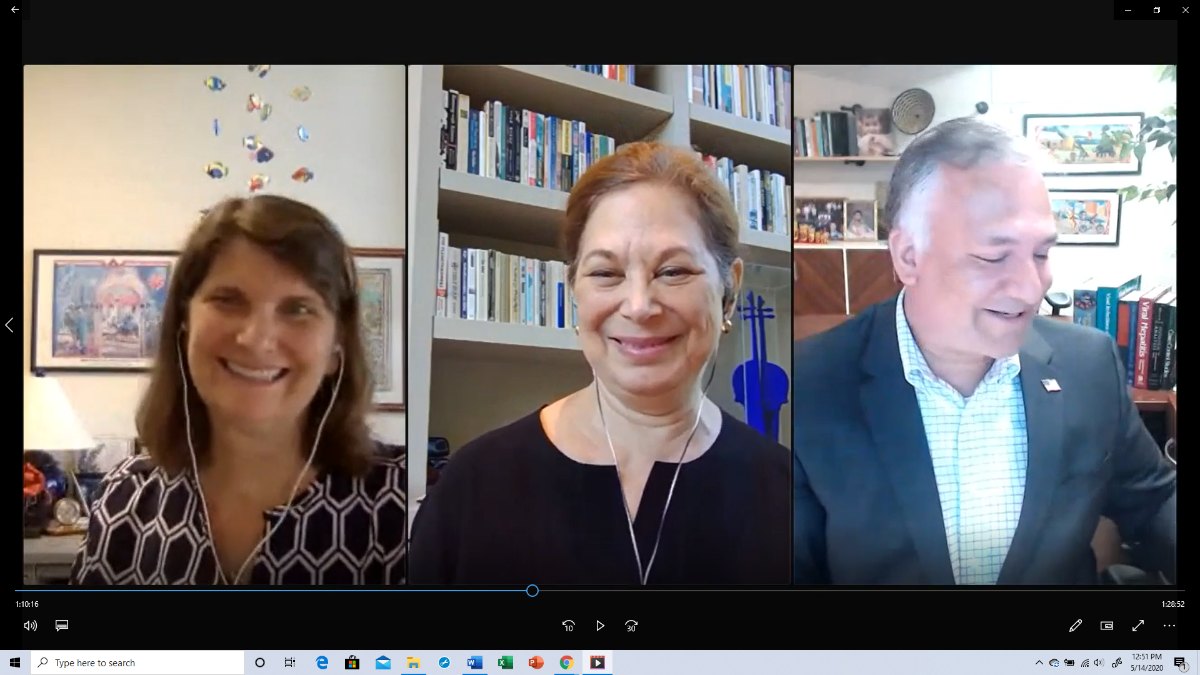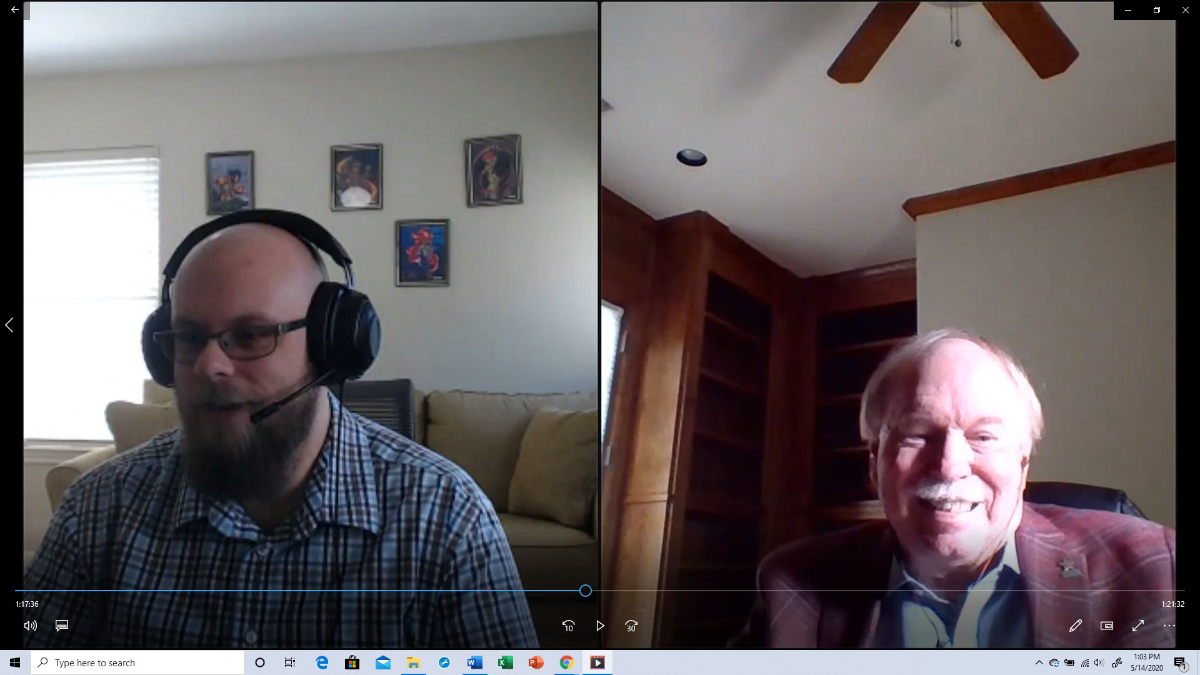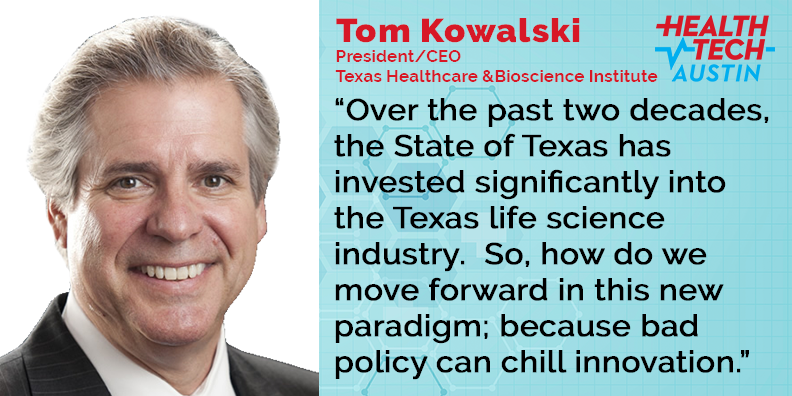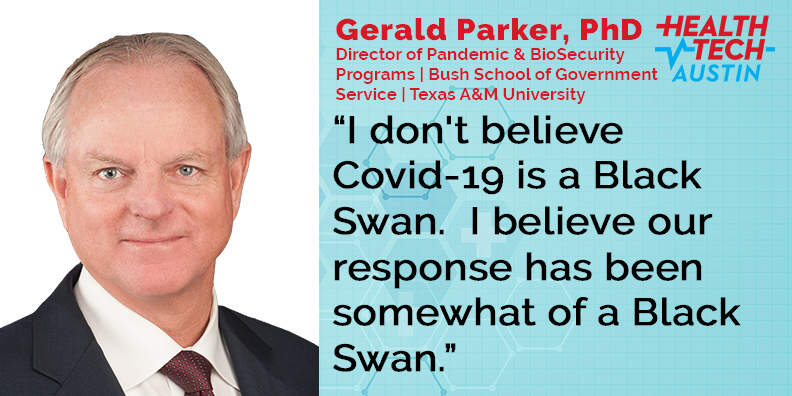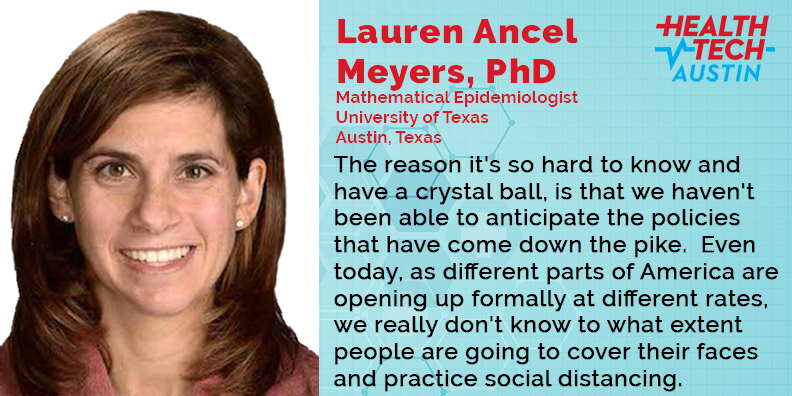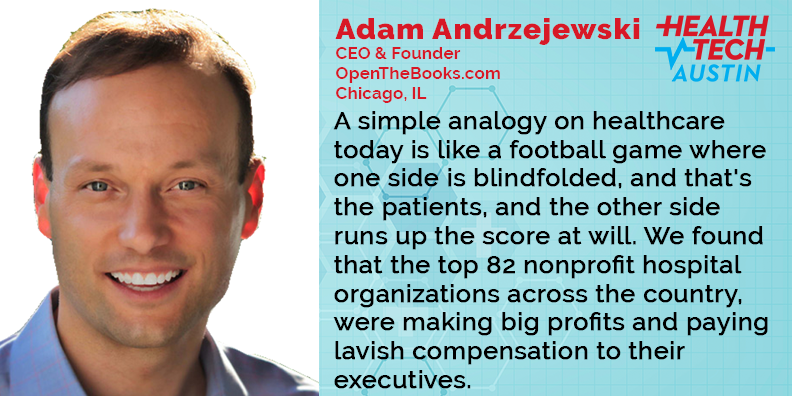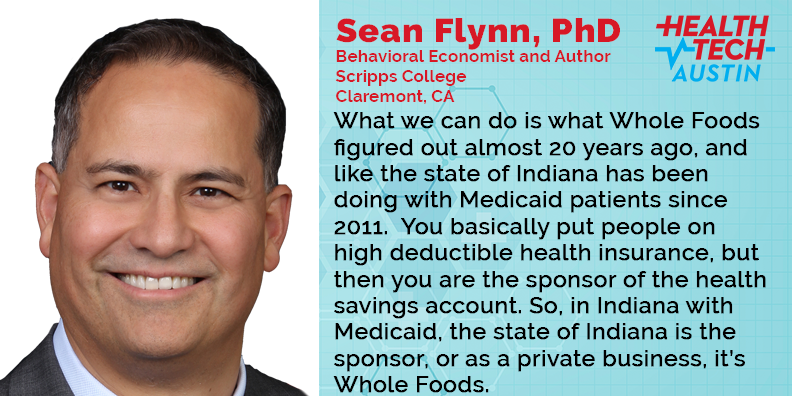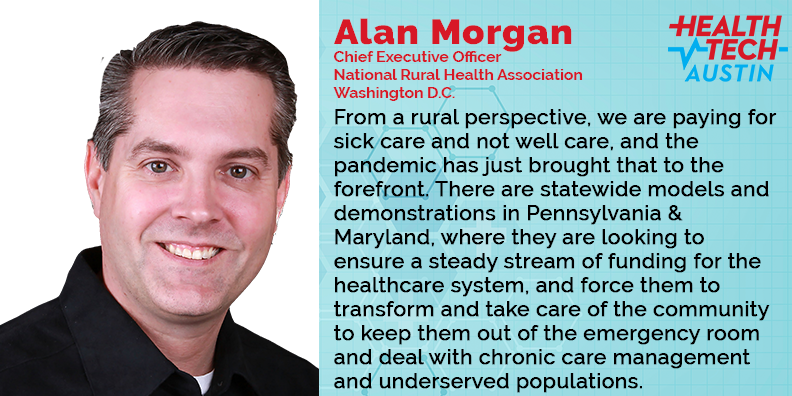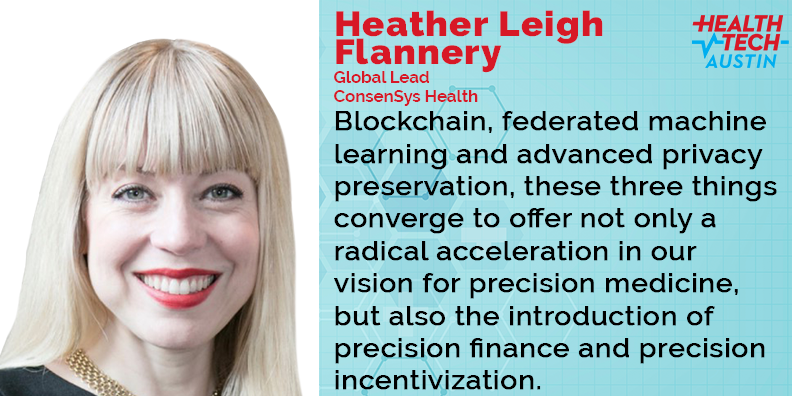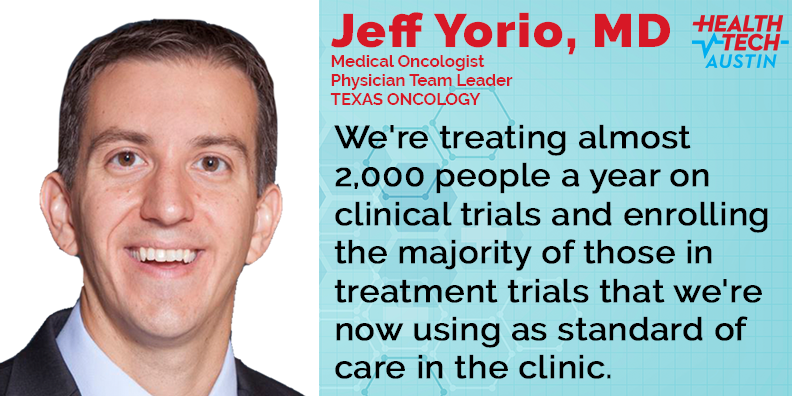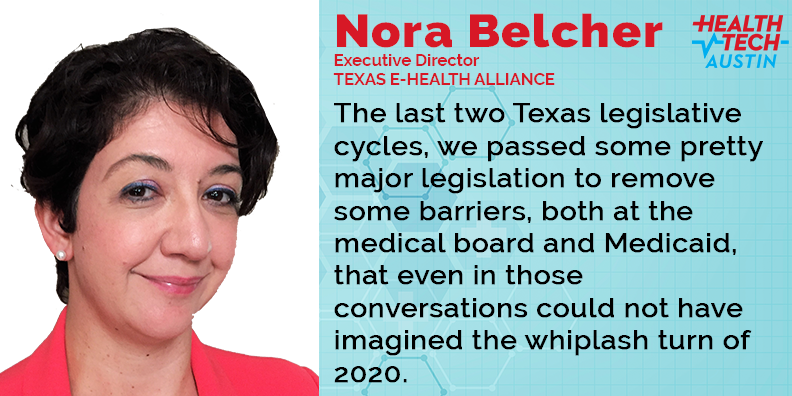COVID-19, the worst crisis facing the planet since World War II, was the focus of a Health Tech Austin virtual summit May 7. Three expert panels shared insights on the pandemic, including a discussion on its march through communities and countries; how the bioscience industry is responding and the impact on vulnerable populations; what we’ve learned from past pandemics and where we’re headed.
Tom Kowalski Joined The Conversation By Phone
Will is the co-founder and CEO of Sana Benefits, an innovative health benefits serving small and medium employers in Texas.
Sana is on a mission to create best in class health plans that are more affordable than traditional options for its employer clients.
Prior to Sana, Will was on the leadership team at Justworks, a venture-backed payroll, and benefits startup in New York, where he led operations and then ran a product team.
Will’s experience also includes a couple of years working in business development at Google in Los Angeles. Will has a BA from Stanford and an MBA from Harvard Business School.
United States Congressman Lloyd Doggett represents communities from San Antonio to Austin. He serves as Chairman of the Heath Subcommittee on the House Ways & Means Committee, the oldest committee of the United States Congress. Congressman Doggett is also a member of the Ways and Means Select Revenue Measures Subcommittee, the Joint Committee on Taxation, and the House Budget Committee.
As Chairman of the Ways & Means Health Subcommittee, Rep. Doggett works to put patients first, lower Big Pharma monopoly prices, cut out-of-pocket cost, and reverse Republican sabotage of our healthcare system. He is a sponsor of multiple pieces of legislation that would allow Medicare to use its purchasing power to lower drug costs for seniors and taxpayers through negotiation, fight anti-competitive pay-for-delay deals, and promote transparency throughout the drug development and pricing process.
Congressman Doggett was an active member of the Health Subcommittee when the Affordable Care Act was written in 2009-10. Since before coming to Congress, he also served as a Justice on the Texas Supreme Court, he understands the legal complexities of the very important challenge to the Affordable Health Care Act just argued before the Fifth Circuit Court of Appeals.
featured speakers
Elena M. Marks is the President and Chief Executive Officer of the Episcopal Health Foundation, a $1.2 billion philanthropy based in Houston, Texas. The foundation works to improve the health and well-being of the 11 million people of the Episcopal Diocese of Texas, which covers 57 counties in east, southeast, and central Texas including Austin, Houston, Beaumont, Lufkin, Tyler, Waco and Bryan/College Station.
Ms. Marks is also a nonresident Fellow in Health Policy at Rice University’s Baker Institute for Public Policy where her work focuses on health reform and access to care for low income and uninsured populations.
She serves on the boards of Grantmakers in Health, the largest national organization serving the field of health philanthropy, Harris Health System, an integrated health delivery system serving over 300,000 patients annually, and Community Health Choice, a nonprofit, community-based health insurance company with over 400,000 members.
Ms. Marks holds a Bachelor’s degree from Emory University, a law degree from the University of Texas School of Law, and a Master’s in Public Health from the University of Texas School of Public Health.
Ms. Marks’ previous professional experience includes serving as the Director of Health and Environmental Policy for the City of Houston; consulting in the health care industry with large systems and community-based providers; starting and directing a successful legal placement firm; and practicing trial and appellate law with major Texas law firms.
Dr. Alain Labrique is the Founding Director of the Johns Hopkins University Global mHealth Initiative, a multi-disciplinary Center of Excellence of over 150 projects engaged in mHealth innovation and research across the Johns Hopkins system. An infectious disease and population epidemiologist, he serves on the faculty in the Global Disease Epidemiology and Control Program of the Department of International Health.
Dr. Labrique was recognized as one of the Top 11 mHealth Innovators in 2011 by the Rockefeller Foundation and the UN Foundation and was a lead author on a Bellagio Declaration on mHealth Evidence. In 2018, he was awarded the Excellence in International Public Health Practice Award and a Distinguished Alumnus award from the Bloomberg School. Dr. Labrique received a Presidential Excellence in Advising Award for teaching and Bloomberg School recognition for teaching and mentoring students. His work on mHealth strategies for health system strengthening remains among the most cited mHealth resources in the peer-reviewed literature. Labrique has authored over 150 publications in high-impact journals, as well as many book chapters and technical reports on Digital Health, M&E methodologies and emerging infectious diseases.
Labrique has served as a Digital Health and Technical Advisor to several international and global health agencies and Ministries of Health including the World Health Organization, GSMA, USAID, Digital Impact Alliance and HealthEnabled. Dr. Labrique is the current Chair of the WHO mHealth Technical Evidence Review Group (mTERG) and the WHO Digital Health Guidelines Development Group, technical bodies convened by WHO to advise governments on digital health investments.
In addition to teaching and training students and faculty at Hopkins and as a Visiting Professor at institutions in Bangladesh and China, Labrique is lead investigator for several research projects measuring the impact of information and communications technologies on improving maternal, neonatal and infant health in resource-limited settings. He has, over the past decade, concentrated on developing and testing appropriate information and communication technologies (ICTs) that may strengthen gaps in health system performance - targeting both supply- and demand-side challenges.
Dr. Labrique is also actively engaged in developing and validating new public health technologies, and is the inventor of a number of patented diagnostic and anthropometric devices. Dr. Labrique speaks fluent English, French, and Bengali.
R. Steven Paulson, M.D., serves as President and Chairman of the Board for Texas Oncology, an independent private practice with more than 490 physicians and 210 locations across the state. The practice includes Texas Center for Proton Therapy, Texas Breast Specialists, Texas Oncology Surgical Specialists, and Texas Center for Interventional Surgery.
As a lead participant in US Oncology Research, Texas Oncology played a role in the development of more than 90 FDA-approved therapies, about one-third of all cancer therapies approved to date.
Dr. Paulson specializes in medical oncology and hematology and is board certified in medical oncology by the American Board of Internal Medicine.
Dr. Paulson received his Bachelor of Science in chemistry from Texas A&M University in 1972 and his medical degree from The University of Texas Southwestern Medical School in Dallas, Texas, in 1977.
He received training in internal medicine at Peter Bent Brigham Hospital in Boston, Mass., from 1977 to 1979, and completed training in internal medicine at Parkland Memorial Hospital in Dallas, Texas, from 1979 to 1980, where he also completed a fellowship in hematology and oncology from 1980 to 1982. Dr. Paulson received additional training at the bone marrow transplant unit at Fred Hutchinson Cancer Center in Seattle, Wash., in 1982.
Dr. Paulson is a member of the American College of Physicians, American Society of Clinical Oncology, and Texas Medical Association. He served on the Texas Society of Medical Oncology board of directors and as its president in 1991.
Thomas R. Kowalski is President and CEO of the Texas Healthcare and Bioscience Institute (THBI) in Austin, Texas.
He has previously served as a senior staff member to Governor Bill Clements of Texas, U.S. Senator John Tower of Texas, and Congressman Jim Collins of Dallas, Texas.
With over thirty-five years of political and policy experience, Mr. Kowalski was appointed in 1989 by Governor Bill Clements to the Board of Regents of the Texas State University System. He served as Chairman of the Board of Regents in 1995. In addition, Mr. Kowalski currently serves as Chairman of the McCoy College of Business Administration Advisory Council at Texas State University.
An avid public speaker, Mr. Kowalski gives numerous talks on positioning Texas as a global leader in the development of biotechnology and life sciences. He was appointed in 2002 to Governor Rick Perry’s State Council on Science and Biotechnology Development. He is the former Chairman of Bio’s Council of State Biotechnology Associations, whose national membership consists of forty-nine state associations involved in biotechnology development and advocacy. Mr. Kowalski is a distinguished alumnus of Texas State University.
A lifelong Texan, Mr. Kowalski resides in Austin, Texas with his wife, Susie.
John M. Barry is a prize-winning and New York Times best-selling author whose books have won multiple awards. The National Academies of Sciences named his 2004 book The Great Influenza: The story of the deadliest pandemic in history, a study of the 1918 pandemic, the year's outstanding book on science or medicine. His earlier book Rising Tide: The Great Mississippi Flood of 1927 and How It Changed America, won the Francis Parkman Prize of the Society of American Historians for the year's best book of American history and in 2005 the New York Public Library named it one of the 50 best books in the preceding 50 years, including fiction, nonfiction, and poetry. His books have also been embraced by experts in applicable fields: in 2006 he became the only non-scientist ever to give the National Academies Abel Wolman Distinguished Lecture, a lecture which honors contributions to water-related science, and he was the only non-scientist on a federal government Infectious Disease Board of Experts. He has served on numerous boards, including ones at M.I.T's Center for Engineering Systems Fundamentals, the Johns Hopkins Bloomberg School of Public Health, and the Society of American Historians. His latest book is Roger Williams and The Creation of the American Soul: Church, State, and the Birth of Liberty, a finalist for the Los Angeles Times Book Prize and winner of the New England Society Book Award.
His books have involved him in two areas of public policy. In 2004, he began working with the National Academies and several federal government entities on influenza preparedness and response, and he was a member of the original team which developed plans for mitigating a pandemic by using "non-pharmaceutical interventions"-- i.e., public health measures to take before a vaccine becomes available. Both the Bush and Obama administrations have sought his advice on influenza preparedness and response, and he continues his activity in this area.
He has been equally active in water issues. After Hurricane Katrina, the Louisiana congressional delegation asked him to chair a bipartisan working group on flood protection, and he served on the Southeast Louisiana Flood Protection Authority East, overseeing levee districts in metropolitan New Orleans, from its founding in 2007 until October 2013, as well as on the Louisiana Coastal Protection and Restoration Authority, which is responsible for the statewide hurricane protection. Barry has worked with state, federal, United Nations, and World Health Organization officials on influenza, water-related disasters, and risk communication.
His writing has received not only formal awards but less formal recognition as well. In 2004 GQ named Rising Tide one of nine pieces of writing essential to understanding America; that list also included Abraham Lincoln's Second Inaugural Address and Martin Luther King's "Letter from Birmingham Jail." His first book, The Ambition and the Power: A true story of Washington, was cited by The New York Times as one of the eleven best books ever written about Washington and the Congress. His second book The Transformed Cell: Unlocking the Mysteries of Cancer, coauthored with Dr. Steven Rosenberg, was published in twelve languages. And a story about football he wrote was selected for inclusion in an anthology of the best football writing of all time published in 2006 by Sports Illustrated.
A keynote speaker at such varied events as a White House Conference on the Mississippi Delta and an International Congress on Respiratory Viruses, he has also given talks in such venues as the National War College, the Council on Foreign Relations, and Harvard Business School. He is co-originator of what is now called the Bywater Institute, a Tulane University center dedicated to comprehensive river research.
His articles have appeared in such scientific journals as Nature and Journal of Infectious Disease as well as in lay publications ranging from Sports Illustrated to Politico, The New York Times, The Washington Post, Fortune, Time, Newsweek, and Esquire. A frequent guest on every broadcast network in the US, he has appeared on such shows as NBC's Meet the Press, ABC's World News, and NPR's All Things Considered, and on such foreign media as the BBC and Al Jazeera. He has also served as a consultant for Sony Pictures and contributed to award-winning television documentaries.
Before becoming a writer, Barry coached football at the high school, small college, and major college levels. Currently Distinguished Scholar at Tulane's Bywater Institute and a professor at the Tulane School of Public Health and Tropical Medicine, he lives in New Orleans.
Dr. Gerald Parker is the Associate Dean for Global One Health at the College of Veterinary Medicine & Biomedical Sciences, and in this role, he also serves as Campus Director for Global One Health at Texas A&M University.
He holds joint appointments at the Bush School of Government Service as Director of the Pandemic and Biosecurity Policy Program within the Scowcroft Institute for International Affairs and AgriLife Research as strategic advisor for the Institute for Infectious Animal Diseases. Parker is a member of several advisory boards, including the National Academies of Sciences, Engineering and Medicine standing committee on Health Threats and Workforce Resilience, Homeland Security Science and Technology Advisory Committee, and the Biodefense Blue Ribbon Panel.
Prior to his appointment to Texas A&M University, Dr. Parker held technical to executive leadership positions throughout 36 years of public service as a recognized defense and civilian interagency leader in biodefense, high consequence emerging infectious diseases, global health security and all-hazards public health/medical preparedness. This included coordinating federal medical/public health responses to Hurricanes Katrina thru Alex, to the 2009 Pandemic and Haiti earthquake.
Dr. Parker’s service includes more than 26 years on active duty leading medical research and development programs and organizations. He is a former Commander and Deputy Commander, U.S. Army Medical Research Institute of Infectious Diseases. Dr. Parker held senior executive level positions at the Department of Homeland Security, the Department of Health and Human Services (HHS) and the Department of Defense (DOD), including serving as the Principal Deputy Assistant Secretary for Preparedness and Response at HHS, and Deputy Assistant Secretary of Defense for Chemical and Biological Defense at DOD.
Dr. Parker is a 2009 recipient of the Distinguished Executive Presidential Rank Award, and the Secretary of Defense Medal for Meritorious Civilian Service in 2013. Dr. Parker graduated from Texas A&M’s College of Veterinary Medicine, Baylor College of Medicine Graduate School of Biomedical Sciences and the Industrial College of the Armed Forces.
